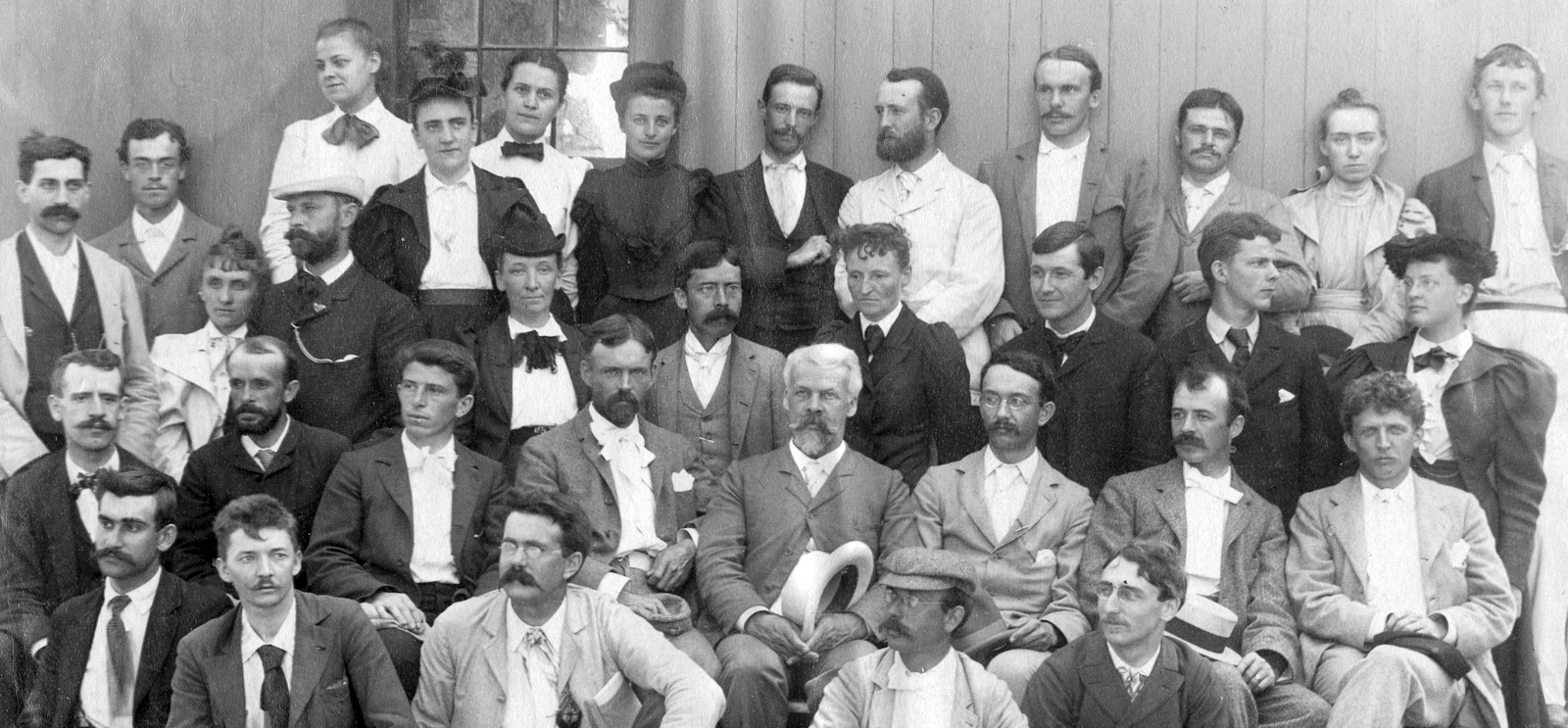
1894: Investigators and faculty at the Marine Biological Laboratory. (Photo courtesy Marine Biological Laboratory, CC BY-NC-SA)
The connections between UChicago and the Marine Biological Laboratory go back more than a century.
A century-old pas de deux culminated in 2013, when the University of Chicago and the Marine Biological Laboratory entered into a formal affiliation. The histories of UChicago and the Woods Hole, Massachusetts, nonprofit center for biology, biodiversity, and environmental research had long been intertwined.
“The two institutions were, in a sense, almost cofounded,” says surgery professor Karl Matlin, who cocurated Shared Past, Shared Future, a recent exhibition at the John Crerar Library that illuminated UChicago-MBL connections.
The ties date back to the MBL’s founding in 1888: Charles Otis Whitman, the laboratory’s first director, was recruited to establish the Biological Sciences Division at UChicago just three years later. At the MBL Whitman formed the values that he would bring to UChicago, promoting a collaborative ethos and a balance between research and teaching. He also prioritized the then-overlooked fields of experimental and cellular biology.
A few other key relationships can be traced in this photograph, showing scientists at the MBL in the summer of 1894. Circled is Frank Lillie, PhD 1894, Whitman’s graduate student and eventual successor as both director of the MBL and chair of zoology at UChicago. Today, in his honor, UChicago and the MBL bestow Frank R. Lillie Research Innovation Awards for collaborative biological research. Standing near Lillie is Frances Crane, EX 1909, whom Lillie later married. This connection led Frances’s brother, Chicago businessman Charles Crane, to join the MBL board and become a major benefactor.
Over the years the association of UChicago scientists with the MBL—from zoologist Cornelia Clapp, PhD 1896, at the turn of the 20th century to pioneering ecologist Warder Clyde Allee, SM 1910, PhD 1912 in the ’50s—strengthened the institutions’ relationship. The recent affiliation has proliferated these ties, bringing new year-round research and educational opportunities.
Last fall, for instance, the MBL hosted its first undergraduate course, an exploration of biology, evolution, and the cultural history of whaling on Nantucket Sound. This May the two institutions joined with Argonne National Laboratory to form the Microbiome Center, a new partnership seeking to understand microbes and their roles in all of the earth’s environments.
